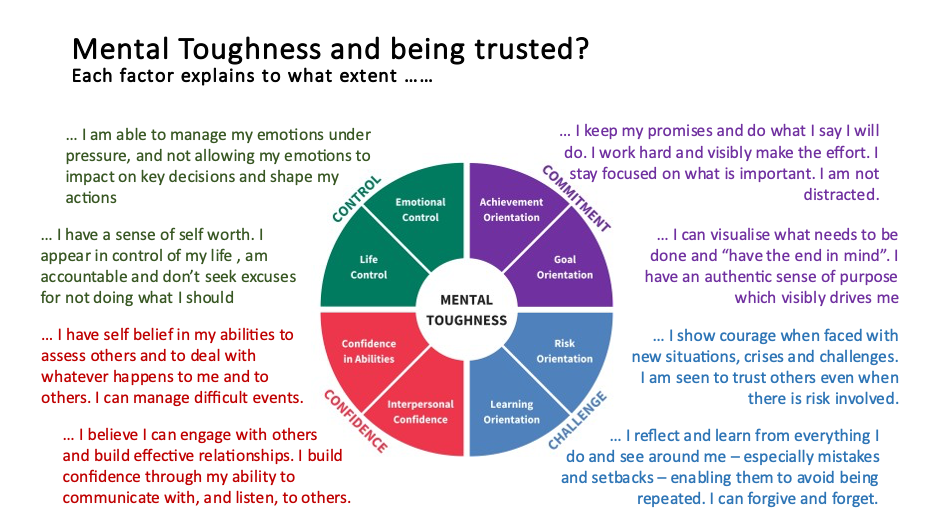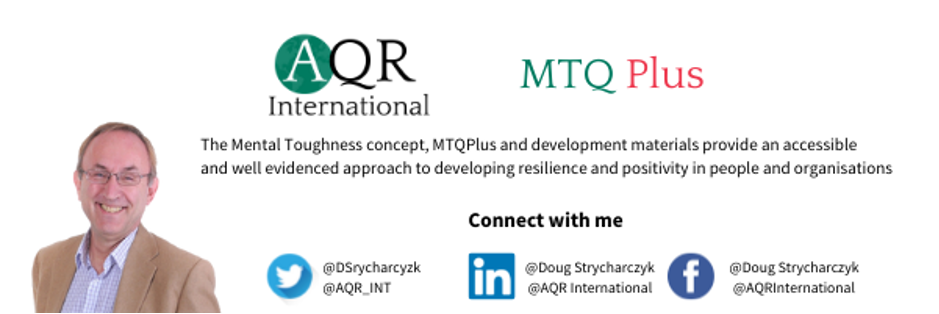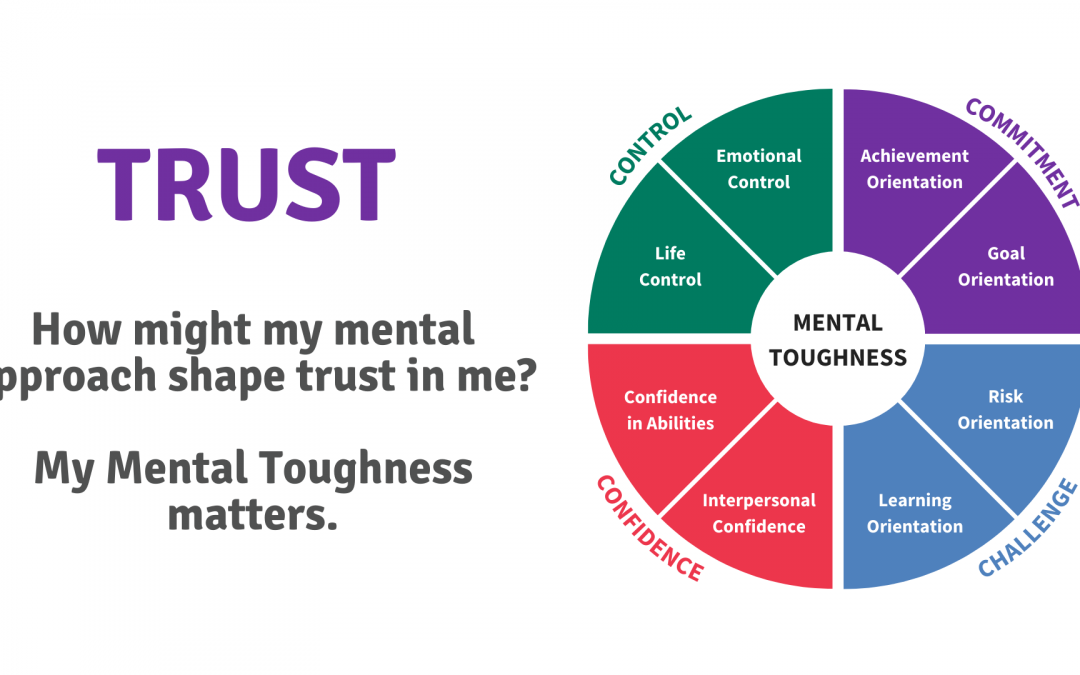How might my mental toughness shape my trustworthiness?
This article is the third in a series that looks at Trust from three different perspectives, each using the mental toughness framework to gain valuable insight. The first two examined to what extent my mental toughness influences the way I trust others and the extent to which my mental toughness impacted the extent I trust myself. The latter could also impact the extent to which I can trust others.
This article looks at my trustworthiness. Which aspects of mental toughness are important in my being trusted by others?
This is a key question for those, leaders, managers and others, who are engaged in building a culture of trust.
When we look at someone to decide whether we can trust them, we can’t see how they think. We can’t peer into another’s mind. We assess and judge them by their behaviour. That, of course, is how others see and assess us in this respect.
There are behaviours which we associate with being trusted. Fortunately, we can associate many of these behaviours with the way we approach events in our thoughts – our mental toughness.
The eight factors of the 4Cs concept can illuminate this. And again, we can see the crucial importance of self-awareness about these factors and reflection on how we can optimise these to enable us to be trustworthy individuals.
This image provides an overview of this relationship, explored more fully later in the article.

If we start in the top left-hand quadrant, we come first to Life Control. This describes the extent to which we have a sense of self-worth and is often associated with “can-do” behaviour, being effective at prioritising and planning and being prepared to try something even if it is new or difficult.
Those who feel that they can control sufficient of their situation and circumstances to achieve important outcomes may also be more prepared to be accountable for those outcomes.
This can encourage being trusted.
However high levels could manifest themselves in the form of reckless behaviours – having a go at everything, possibly unrealistic, resulting in worrying others less “spirited”.
This can be mitigated and managed to a degree through self-awareness.
Those more mentally sensitive here, are likely to be hesitant and perhaps offer excuses and reasons why something can’t be done. This might not develop trust.
When we look at Emotional Control, this describes the extent to which we can manage our emotions. So, we might be feeling those emotions but we learn to behave in a way that is poised and even. Calm too. It is likely that this will be seen as a marker of trustworthiness.
Revealing our emotional state to others and allowing emotions to demonstrably affect decisions and important actions is likely to be interpreted as behaviour inconsistent with trust.
Turning to the Commitment quadrant, the two factors which together explain this construct are Goal Orientation – the extent to which you can visualise what needs to be done – and Achievement Orientation – the extent to which you are prepared to make the effort (often working hard) to achieve what needs to be done.
The first creates a sense of purpose and the second indicates an aspect of conscientiousness.
It is often referred to as “the extent to which we make promises and the extent to which we keep those promises – to others and to ourselves”. At a very practical level, many will see that as the cornerstone of trust.
Mental Sensitivity in this regard might mean that you might lack a sense of purpose or direction and are prepared to let things slip because it’s not worth making the effort.
Looking at Challenge brings us to Risk Orientation. It is not suggesting taking reckless risks. It describes the extent to which you are prepared to push boundaries, explore the new and the unknown. Some of us do and some don’t like that, preferring the status quo.
This might have a complex relationship with trust which is moderated by the other mental toughness factors. It may depend on others level of mental toughness in this regard too.
Stretching oneself and taking even gentle risks might be seen by the more mentally sensitive as “dangerous” and as a consequence, untrustworthy. The more mentally sensitive might find that comfortable because their mindset aligns with yours. That might support a feeling of trust.
A significant level of Learning Orientation could, and perhaps should engender trust. A significant level of learning orientation should indicate that you reflect on events. When things don’t work or go wrong, you acknowledge that and learn from that experience.
Finally, the Confidence quadrant. Confidence is generally something that most people will associate with trust.
Confidence in Abilities means that you are confident in your abilities (knowledge, skills, attitude, etc) to apply them to deal with whatever arises. Providing that you possess those abilities, this is likely to generate trust. Competence should equal trust.
If overstating those abilities, then those with high levels of Confidence in abilities may undermine trust.
Similarly, those who are able but hesitate to use them because they have a low level of confidence in their abilities are unlikely to generate trust.
Finally, Interpersonal Confidence. This describes the extent to which we are minded to engage freely with others. Whether to listen to learn or to share what we know or be prepared to ask questions to explore a topic.
Engagement, as we know from Leadership studies, is critically important in building a sense of trust. It can be a foundation upon which trust can be built.
A lack of Interpersonal Confidence can mean others might not know whether you can be trusted or not.
Once again, the message is our mental toughness matters when it comes to understanding how I might be trusted or seen as trustworthy. Self-awareness about that is more than useful.
Why does this matter?
Many of us are in roles where our ability to generate trust and be trusted is critically important for our performance (and well being) and for the performance of the organisation and groups we may represent.
For those in leadership and management, this is essential. So too for those engaged in developing others, teachers as well as coaches and trainers.
So too, for those who provide essential services such as medics, nurses, first responders, police etc.
So too, for those who engage in commercial activity and provide services such as maintenance, repair, distribution, etc.
Trust matters. Understanding where it might come from and how others assess and see it matters too.
The mental toughness concept provides us with the capability for that insight.



